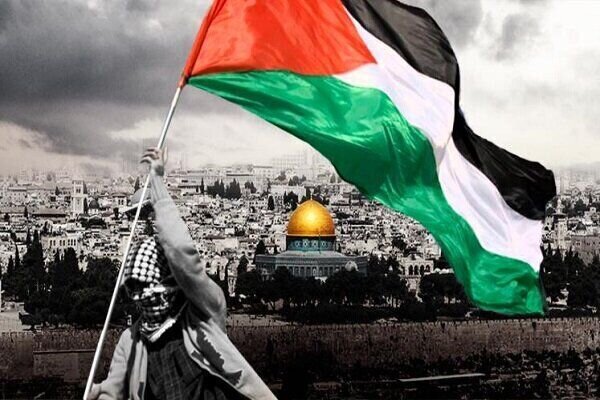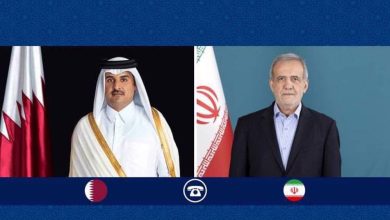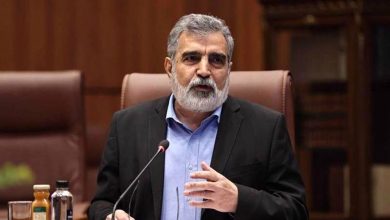Quds Day in the Era of the Flood
Imam Khomeini's designation of the final Friday of Ramadan as International Quds Day was intended to mobilize the Islamic world in forming a united front against Zionism, according to Najah Mohammed Ali.

In a strategic move to invigorate unity within the Islamic world, Imam Khomeini (may Allah be pleased with him) established the last Friday of Ramadan as International Quds Day. This initiative was designed to mobilize a consolidated effort against Zionism, set the groundwork for Palestinian liberation, and eliminate the ongoing occupation, with the aim of ensuring peace across the region. While interpretations of this significant move have varied, Imam Khomeini notably classified this day as “the day of Islam’s life,” underscoring its profound importance.
The “Al-Aqsa Flood” operation, both in its execution and outcomes, highlights a growing global solidarity with the Palestinian cause, including noticeable support within Western regions. This surge in popular sentiment persists in the face of efforts by some regional governments to normalize relations, while also attempting to instill despair and create confusion. The operation underlined the Islamic world’s commitment to the ideals symbolized by Quds Day, prompting significant efforts to distort and misinform about the day’s true message.
The Islamic awakening that has emerged across the region is widely regarded as an early and notable outcome of Imam Khomeini’s distinctive movement and strategic efforts to highlight the importance of Quds, culminating in the establishment of Quds Day. This initiative was designed to ensure that the significance of Quds would extend beyond the borders of Palestine. Over time, the influence of Quds Day and the Palestinian resistance has become increasingly apparent, contributing to the proliferation of anti-Zionist sentiments, distinct from anti-Jewish views, despite attempts by some to blur this distinction. In this context, Islamic scholars have consistently demonstrated their steadfast support for the Palestinian cause.
Imam Khomeini regarded Quds Day as a pivotal moment for the emancipation of Muslims from the dominance of major global powers. Throughout his speeches, he consistently underscored the critical importance of nations uniting to liberate Palestine. Despite enduring years of conflict and sanctions levied against Iran, Imam Khomeini maintained an unwavering focus on Quds, steadfastly advocating for its liberation and continued support.
Imam Khomeini has urged the formation of a global coalition dedicated to advancing the cause of Palestinian liberation. In his address marking International Quds Day, he stated:
There is hope for the establishment of a global entity known as the Party of the Oppressed, envisioned to unify individuals facing oppression worldwide. The movement seeks to empower these groups by addressing the barriers impeding their advancement. The initiative aims to challenge dominant powers and foreign occupiers, ultimately seeking to dismantle systems of ongoing oppression. By doing so, it aspires to fulfill the Islamic principle that the oppressed will eventually inherit and govern the earth.
Throughout history, the oppressed have faced division, hindering any significant progress towards their emancipation. However, a breakthrough has been observed as a model of unity among the oppressed has been established within a Muslim region. This initiative presents a compelling case for expansion to encompass all sectors of society worldwide, calling for a holistic and unprecedented approach. The proposal advocates for the establishment of a “Party of the Oppressed,” a concept already personified by the movement Hezbollah. This organization aligns its mission with divine promises, reflecting the belief that the oppressed are destined to inherit the earth.
In 1979, Imam Khomeini articulated his perspective on a critical misjudgment he believed was made by Muslims that ultimately paved the way for the establishment of the state of Israel.
All Muslims, particularly Arab governments and nations, made a significant miscalculation by permitting the establishment of Israel from its inception. The personal ambitions and interests of these governments hindered efforts to prevent Israel’s development in its early stages, allowing it to grow strong enough to resist external pressure. Regrettably, it was the personal motivations of Arab leaders that led them to disregard longstanding calls for unity against Israel, advice that had been steadfastly offered for almost two decades.
The declaration of Quds Day by Imam Khomeini, alongside the ensuing events following the Camp David Accords, has underscored the perceived threat posed by the Zionist entity, extending beyond Quds and Palestine. This entity is described as a “germ of corruption,” with concerns that, if unchecked, it could pose a risk to all Islamic nations.
In several of his sermons, Imam Khomeini underscored the significance of Quds, emphasizing the apprehensions held by Zionist entities about Iran’s influence and its growing connections with the Arab and Islamic communities. He articulated:
“Israel seeks the absence of religious scholars, the Quran, and Islamic laws in pre-revolutionary Iran as a means to fulfill its objectives.”
In a series of addresses, Imam Khomeini issued cautions regarding the normalization of relations with Israel, highlighting the significance of Quds Day in obstructing the Zionist state’s efforts to secure a prominent position in the region. He stressed that such developments were intended to erode the intellectual principles held by the Muslim community.
It has become evident that the observance of Quds Day has significantly contributed to rallying Islamic nations, as well as some of their leaders, against the occupying authority. Imam Khomeini highlighted the importance of this day, asserting that both Muslim nations and their governments played a part in the establishment of the occupying entity and, as such, have a duty to address its dismantling. He remarked:
Muslim nations and their governments are urged to unify their efforts, as those who oppose Islam, including Zionist entities perceived as Islam’s principal adversaries, aim to exert control over Muslim territories systematically.
The commemoration of Quds Day has undoubtedly bolstered Islamic solidarity, a particularly vital development in the aftermath of the “Al-Aqsa Flood” operation which showcased the enduring resilience of the Palestinian people. Amid escalating challenges and ongoing setbacks for adversarial forces, Islamic unity has become an essential cornerstone. The Palestinian cause, along with the quest for the liberation of Quds, has resurfaced as a key rallying point, promoting unity and cohesion across the Islamic world.
In light of current geopolitical dynamics, Quds Day necessitates a reevaluation and strategic foresight regarding its future significance. The Palestinian cause, central to the Islamic world’s ethos, cannot be sidelined without inflicting significant damage on the collective unity of the Muslim Ummah. Therefore, it is imperative for all Islamic nations to observe this pivotal day, which symbolizes the ongoing struggle between the oppressed and the oppressors, transcending mere rhetoric and superficial actions.
Amid escalating tensions, there is growing recognition of the perceived threat posed by Israel to the Middle East and Islamic territories. The call for solidarity among Muslim nations to support Palestinians and oppose ongoing actions viewed as aggressive by Israeli forces is increasingly seen as a critical avenue for achieving dignity and unity within the Islamic community.







